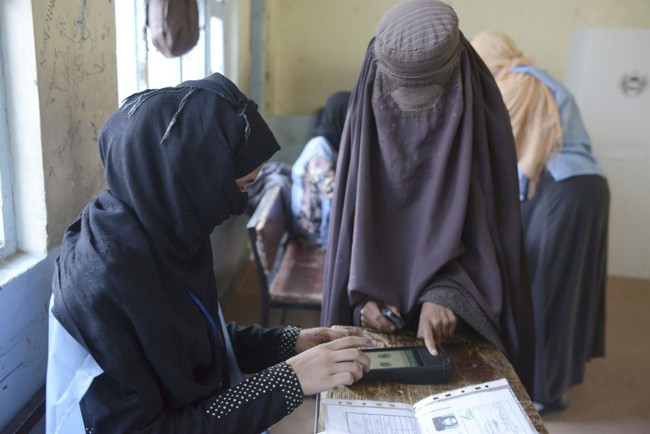The Taliban’s grip on Afghanistan keeps getting tighter and harsher, and women are paying the price. After the chaotic U.S. withdrawal that left 13 American service members dead and countless Afghans behind, the militant regime has steadily stripped away freedoms and livelihoods. What used to be small pockets of independence for women — work, education, even simple communication — is being erased under Taliban rule.
The collapse that followed the Biden administration’s withdrawal set the stage for a ruthless rollback of rights. Women are now barred from basic actions like using cell phones, studying beyond a certain age, working in offices outside the home, speaking in public, or even being seen through windows. The Taliban has recently cut off another lifeline, eliminating jobs that many women relied on to support families, leaving widows particularly vulnerable and hungry.
One of the few trades left to Afghan women was carpet weaving, a craft that provided income and a measure of dignity. Carpet workshops became refuges for girls and women forced out of schools and other jobs, and entire families depended on the tiny wages earned there. The regime’s move to end or restrict that work threatens to turn an already dire humanitarian situation into a catastrophe for thousands of households.
A new Taliban ban has forbidden women from working in the carpet weaving industry, leaving many widows and sole breadwinners unemployed. Despite earlier restrictions on office work, some women had relied on these labor-intensive jobs—until now.💔😡
Please stand with Afghan women pic.twitter.com/IE7aa6VYr2— WDI.Afghanistan (@WDIAfghanistan1) October 29, 2025
At a workshop in Kabul where carpets are made, hundreds of women and girls work in a cramped space, the air thick and stifling.
Among them is 19-year-old Salehe Hassani. “We girls no longer have the chance to study,” she says with a faltering smile. “The circumstances have taken that from us, so we turned to the workshop.”
Since the Taliban seized power in 2021, girls over the age of 12 have been barred from getting an education, and women from many jobs.
In 2020, only 19% of women were part of the workforce – four times less than men. That number has dropped even further under Taliban rule.
The lack of opportunities, coupled with the dire economic situation the country faces, have pushed many into long, laborious days of carpet weaving – one of the few trades the Taliban government allows women to work in.
The pattern is predictable: the Taliban removes options, and ordinary people — especially women — suffer the consequences. This isn’t a distant news item; it’s a direct result of a policy failure that created a vacuum filled by a brutal regime. Families that once balanced on fragile incomes are now facing chronic hunger and the loss of any future for girls.
Meanwhile, Western countries have been inconsistent in their responses, at times giving safe harbor or citizenship rights to men linked to the regime or to networks that empowered it. Allowing those who enforced or tolerated oppression to relocate and integrate without accountability raises moral and security questions. It also sends a message that the suffering of Afghan women can be sidelined in geopolitical trade-offs.
The global feminist movement should be loud on this, but too many voices are muted. For years some activists warned that conservative policies at home would create dystopian outcomes, while they ignored real, ongoing atrocities abroad. That selective outrage looks less like principled concern and more like political theater when Afghan women’s basic freedoms are stripped away.
Silence can be cowardice or convenience. Some advocates stay quiet to avoid charges of hypocrisy or racism, others because criticizing Islamist regimes can be dangerous. Worst-case, a segment might even tacitly approve the harsh rules if it fits a flawed narrative about cultural relativism. None of those reasons excuse leaving women to fend for themselves under brutal rule.
What’s happening in Afghanistan is a lesson in consequences and priorities. Political decisions have ripple effects, and the chaotic exit created space for the Taliban to tighten its chokehold. Those consequences are measured in lost educations, ruined livelihoods, and homes where widows count the days without enough food for their children.
Editor’s Note: The Schumer Shutdown is here. Rather than put the American people first, Chuck Schumer and the radical Democrats forced a government shutdown for healthcare for illegals. They own this.






